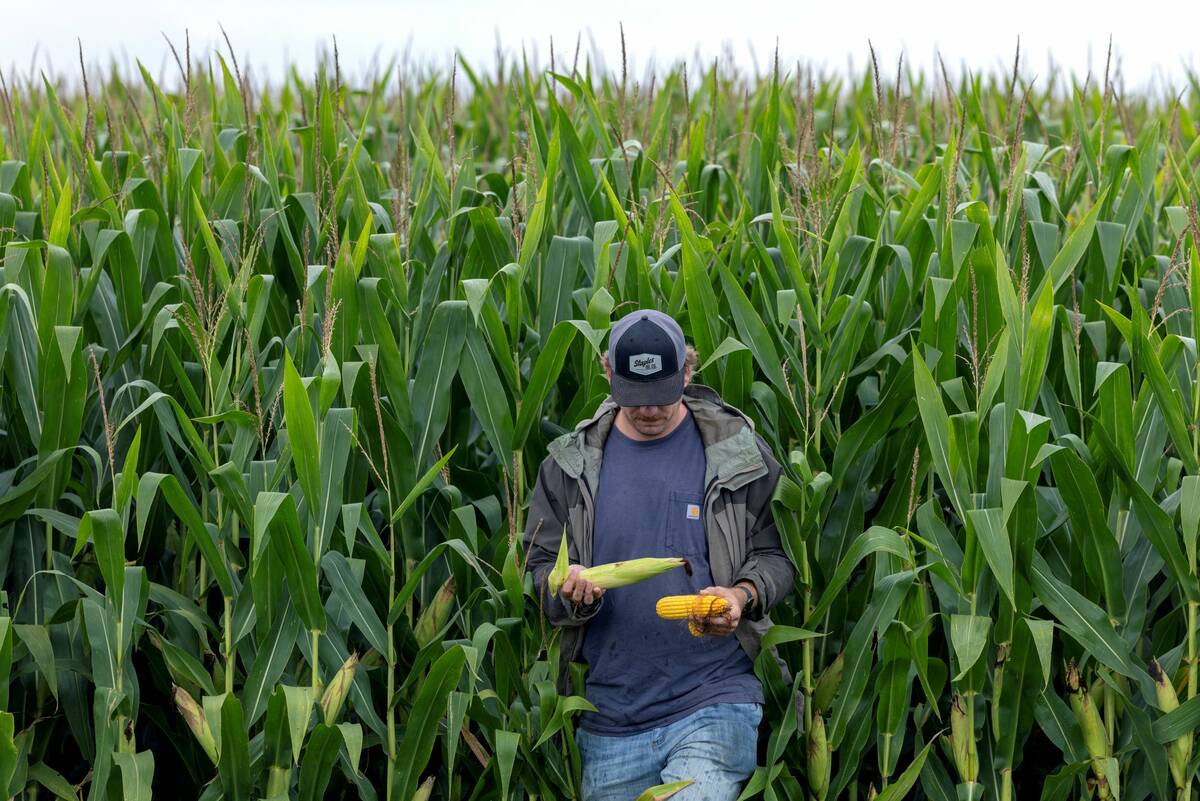A U.S. organic seed grower organization best known for its court case against Monsanto has parted ways with one of North America’s biggest organic sector bodies over a proposed nationwide GMO label law in the U.S.
The Maine-based growers’ group, the Organic Seed Growers and Trade Association (OSGATA), announced Thursday its board has voted to withdraw the association’s membership from the Organic Trade Association (OTA).
At issue is OTA’s stated support for a bill on its way through the U.S. Congress requiring mandatory labelling of foods made with ingredients derived from genetically modified (GM) crops. The bill passed the Senate on July 7 and moves now to the U.S. House of Representatives.
Read Also

The U.S. corn crop could be the biggest ever. That’s terrible news for America’s farmers.
The USDA predicts a record corn crop for U.S. farmers, who question the agency’s accuracy amidst high debt and low crop prices.
Washington, D.C.-based OTA, which is closely affiliated with the Ottawa-based Canadian Organic Trade Association (COTA), has hailed the bill as taking “an important step forward in providing more information for all consumers.”
The bill, introduced in the Senate by its agriculture committee chairman Pat Roberts and ranking Democrat member Debbie Stabenow, follows the coming into force of Vermont’s mandatory GMO label law on July 1.
Not wishing to create a separate label system for products sold in Vermont, many U.S. food firms in the past year have moved to label their product lines nationwide for GM content.
OSGATA, in a release Thursday, said its exit from OTA is “prompted by OTA’s duplicity towards organic farmers and consumers when a small number of OTA board members endorsed a dangerous Senate bill that would immediately preempt existing strong state GMO labeling laws that are widely supported by the organic community and 90 per cent of consumers.”
OSGATA ripped the Stabenow-Roberts bill as “backed by industrial agriculture and large food conglomerates… whose primary intent are nullifying of historic mandatory GMO labeling laws passed by huge margins in Vermont, Maine, Connecticut and Alaska legislatures and relieving multinational food companies of the requirement to clearly label products that were produced by genetic engineering.”
OTA support “proved essential” for the bill’s passage in the Senate, OSGATA said.
“It’s clear that (the OTA) has come under the control of a small group of lobbyists controlled by giant food corporations that also own organic brands,” OSGATA president Jim Gerritsen said in the group’s release, adding OTA “can no longer be trusted and it’s clear that organic farmers can no longer condone this dubious trade association’s troubling behaviour.”
OTA’s support, OSGATA alleged, “had the intentional effect of misleading senators into believing the bill had the full backing of the organic industry when the truth was the exact opposite.”
OTA, in a separate statement on its website, said the Stabenow-Roberts bill “not only requires disclosure of GMO ingredients (but) recognize(s), unequivocally, that USDA Certified Organic products qualify for non-GMO claims in the marketplace (and) safeguard(s) USDA Certified Organic as the gold standard for transparency and non-GMO status.”
“On the surface, we understand how some may be fundamentally dissatisfied with supporting this compromise solution, because it includes an option (for food companies) to reveal the presence of GMOs through technology” such as QR codes, which would require a consumer to have a mobile phone and internet access to scan and read, the OTA said.
However, the OTA said, the bill “also covers more products than the Vermont law if it goes into effect. When it comes to protecting organic agriculture and trade, we have to take the long view.”
Canada hasn’t yet proposed similar legislation, although a New Democrat MP recently put forward a private member’s bill calling for a national GM label law. Quebec’s government also recently voiced support for the Vermont law and telegraphed that it would set up a label law at the provincial level.
OSGATA is best known for its role in a 2011 lawsuit against seed and ag chem firm Monsanto. The seed growers and a number of Canadian and U.S. farms and organizations sought exemptions from any effort by Monsanto to enforce patent protection over any accidental presence of Monsanto’s genetics in organic seed crops.
Monsanto, for its part, said it “never has and has committed it never will sue if our patented seed or traits are found in a farmer’s field as a result of inadvertent means.” The OSGATA-backed suit ended unsuccessfully at the U.S. Supreme Court in 2014. — AGCanada.com Network












